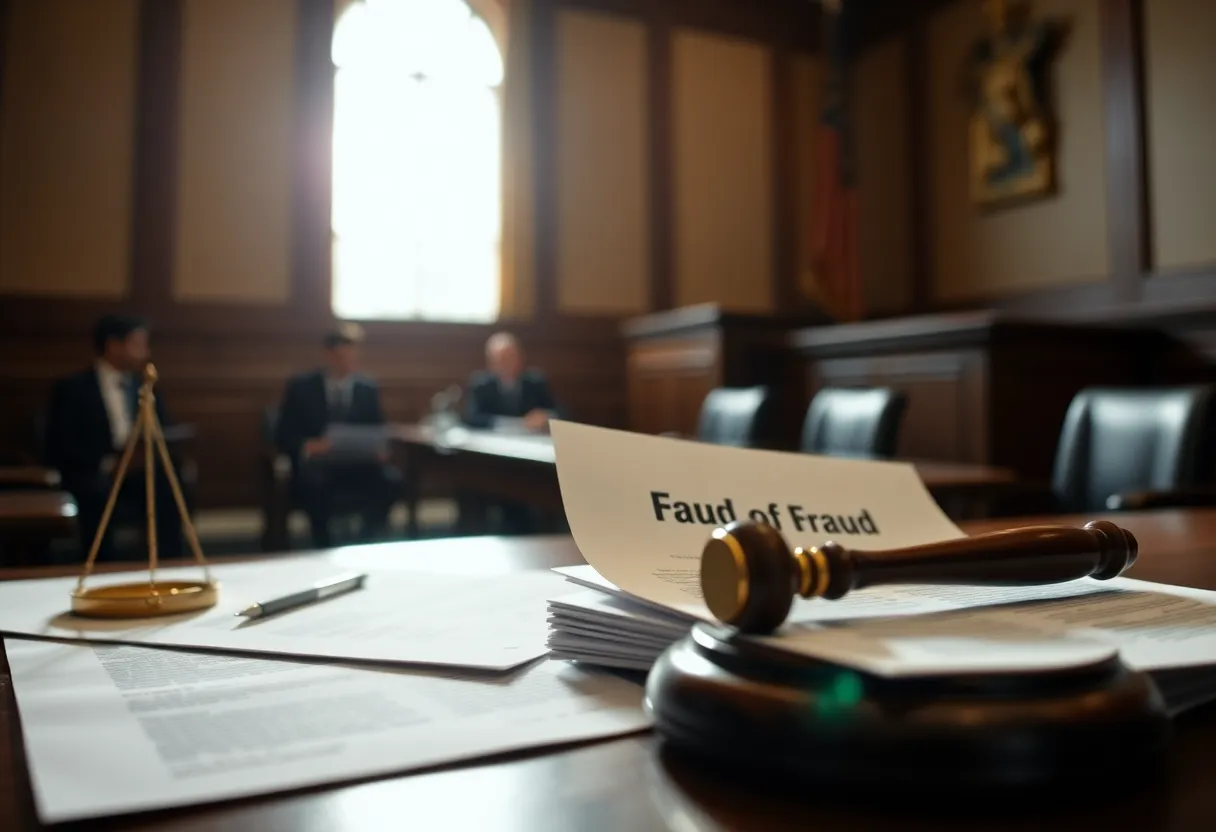News Summary
Tommie Steven Robertson Joyner, a 45-year-old from Lexington, has been sentenced for fraudulently claiming nearly $100,000 in unemployment benefits during the COVID-19 pandemic. Joyner submitted false information regarding his employment and residence in multiple states, leading to significant discrepancies in his applications. While some were denied, others resulted in payments totaling $99,195. This case is part of a larger trend of fraud related to COVID relief efforts, highlighting ongoing challenges in addressing misuse of government assistance.
Lexington Man Sentenced for Fraudulently Claiming Nearly $100,000 in Unemployment Benefits
A Lexington man, Tommie Steven Robertson Joyner, has been sentenced for fraudulently claiming nearly $100,000 in unemployment benefits. Joyner, 45, admitted to submitting false information on unemployment applications to receive these benefits enhanced by the federal government during the COVID-19 pandemic.
Joyner pleaded guilty to one count of wire fraud after investigators discovered that he had provided false employment history and residential information across multiple states including Kentucky, Indiana, Illinois, Tennessee, Michigan, and New York. His applications for benefits were notable for containing significant discrepancies, such as falsely claiming residency at a Detroit address while actually living in Lexington and untruthfully stating that he had been employed at a Brooklyn barber shop.
While some of his applications in states such as Kentucky, Tennessee, and Illinois were denied, Joyner’s applications in Indiana, Michigan, and New York were approved, ultimately resulting in payments totaling $99,195. U.S. District Judge Karen K. Caldwell accepted Joyner’s guilty plea on June 4. He is expected to face sentencing in August, with a maximum potential sentence of 20 years in prison for the wire fraud charge.
Additional Fraud Cases in Lexington
The arrest of Tommie Steven Robertson Joyner is part of a larger trend of fraud cases related to COVID-19 relief efforts. Another suspect, Billy R. Oswald, a 77-year-old Lexington County politician and lawyer, has been charged with three counts of fraud for allegedly obtaining COVID relief funds illegally. The charges against Oswald—filed in March 2020—include forgery, computer crime, and obtaining property under false pretenses.
Oswald is accused of falsifying details about the closure of his law firms due to COVID-19, while simultaneously operating a rental and stimulus aid business. Reports indicate that he had employees file for unemployment benefits even while they continued to work, creating a scheme to exploit government benefits aimed at assisting those affected by the pandemic. This investigation was launched at the request of the South Carolina Law Enforcement Division, highlighting the ongoing scrutiny of COVID relief fund misuse.
Repercussions for Other Fraudulent Activities
In another related case, Jeremy Harrell, the founder and CEO of the nonprofit Veteran’s Club, was convicted of stealing over $100,000 in government benefits after a five-day federal trial in Frankfort. Harrell was found guilty of wrongful receipt of unemployment benefits while managing his organization, even though he claimed he was unemployable due to COVID-19.
Evidence presented during the trial indicated that Harrell worked 40 to 60 hours a week at the nonprofit, contradicting his claims of being unable to work and leading to a conviction of theft of government benefits. Prosecutors showed that he received a total of $108,000 in improper payments from the U.S. Department of Veterans Affairs. Harrell’s sentencing is scheduled for December 9, and he faces a maximum penalty of 10 years in federal prison along with a potential fine of up to $250,000.
Conclusion
The cases of Joyner, Oswald, and Harrell underscore the ongoing challenges faced by law enforcement in addressing fraud related to COVID-19 relief programs. As investigations continue and authorities remain vigilant, these incidents serve as a reminder of the risks involved with potential misuse of government assistance during times of crisis.
Deeper Dive: News & Info About This Topic
HERE Resources
Additional Resources
- Kentucky.com: Lexington Man Sentenced for Fraudulently Claiming Nearly $100,000 in Unemployment Benefits
- Wikipedia: Unemployment Benefits
- WDRB: Veteran’s Club Founder Sentenced
- Google Search: COVID-19 Relief Fraud
- The State: COVID-19 Fraud Cases
- Google Scholar: Unemployment Fraud
- CNN: Kentucky Unemployment Trends
- Encyclopedia Britannica: Unemployment

Author: STAFF HERE LEXINGTON KY STAFF
The LEXINGTON STAFF WRITER represents the experienced team at HERELexingtonKY.com, your go-to source for actionable local news and information in Lexington, Fayette County, and beyond. Specializing in "news you can use," we cover essential topics like product reviews for personal and business needs, local business directories, politics, real estate trends, neighborhood insights, and state news affecting the area—with deep expertise drawn from years of dedicated reporting and strong community input, including local press releases and business updates. We deliver top reporting on high-value events such as Woodland Art Fair, Crave Food and Music Festival, and Railbird Festival. Our coverage extends to key organizations like Commerce Lexington and Blue Grass Community Foundation, plus leading businesses in education, manufacturing, and technology that power the local economy such as University of Kentucky, Toyota Motor Manufacturing, and Lexmark. As part of the broader HERE network, including HEREBowlingGreen.com and HERELouisville.com, we provide comprehensive, credible insights into Kentucky's dynamic landscape.





